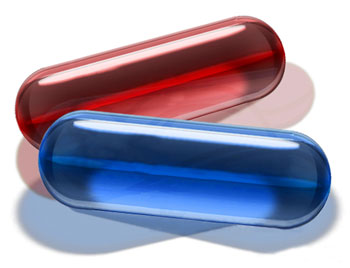Pharmacotherapy for Bipolar

Q. What are the goals of pharmacotherapy in bipolar disorder ?
The selection of appropriate pharmacotherapy depends on both the history and presentation of treatable symptoms. As medication options have increased in number, various treatment guidelines have been developed from clinical studies and expert consensus to facilitate evidence-based medication management.
The specific goals of drug treatment in bipolar disorder will change depending on the stage of the illness.
In the acute phase, reduction of active target symptoms and overall mood stabilization are the focus.
Once these occur, medications are continued to prevent future mood episodes and to enhance the chances of improved psychosocial functioning.
The actual choice of a mood stabilizer is determined by knowledge of established efficacy and a reasonable risk-benefit evaluation regarding the likelihood of adherence and the extent of side effects.
Patient preference should also be taken into consideration.
It is important to realize that pharmacotherapy alone will not provide the best treatment outcomes. Ideally, all pharmacotherapy is accompanied by psychotherapy or other nonpharmacologic interventions if optimal outcomes are to be achieved, and this is supported by a significant body of literature.
In addition, there may be clinical presentations of bipolar disorder that do not completely respond to a single agent, and combinations of mood stabilizers are commonly required to bring symptoms into remission.
Acute Mania or Mixed Episodes
There are many pharmacologic options for treating acute manic episodes.
If the presenting episode is particularly severe, short-term adjunctive treatment with a benzodiazepine may be used as the mood stabilizer is initiated. As with antidepressants, the full effects of mood-stabilizing agents may not be realized until after several weeks of continuous therapy.
The primary therapeutic goal would be the remission of symptoms, including rapid control of any agitation, aggression, or impulsivity that may be present.
Antipsychotics have also been used effectively to treat concomitant symptoms of mania and psychosis.
Acute Bipolar Depression
As with unipolar major depression, the most important goal of treatment is remission of the observed signs and symptoms consistent with the episode, with eventual return to normal levels of psychosocial functioning.
A risk associated with the use of antidepressant monotherapy in bipolar depression is if the patient suddenly switches from a depressive to a manic or hypomanic state. Many clinicians would temper this risk by using a mood stabilizer as adjunctive therapy.
Other options that do not involve the use of antidepressants alone include lithium, lamotrigine, olanzapine-fluoxetine, and quetiapine.
Maintenance Treatment
Once acute symptoms have subsided, the focus shifts to the prevention of relapse, resolution of any residual symptoms, reduction of episode frequency, minimization of suicide risk, and optimization of overall functioning.